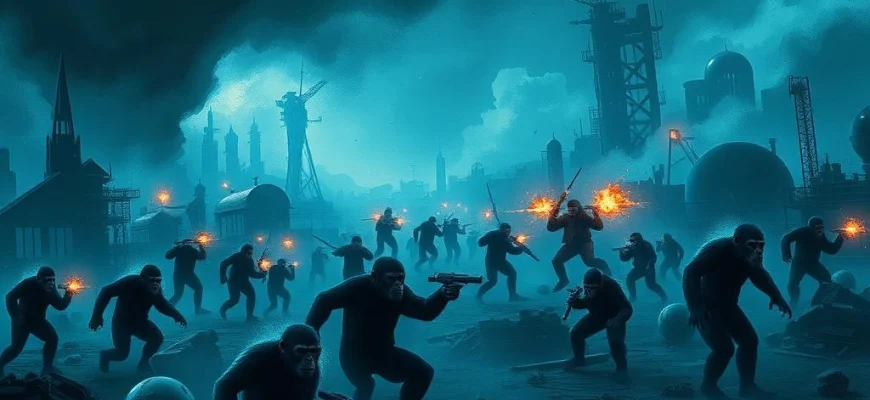If you loved the gripping rebellion and dystopian themes of 'Conquest of the Planet of the Apes' (1972), this article is for you. We’ve curated a list of 10 movies and shows that share its intense action, societal upheaval, and thought-provoking storytelling. Whether you're a fan of sci-fi epics or tales of revolution, these picks will keep you hooked.

THX 1138 (1971)
Description: A bleak vision of a controlled future society where individuality is suppressed, echoing themes of resistance against authoritarian rule and the struggle for personal freedom.
Fact: George Lucas's first feature film was originally a student project expanded into a full-length movie. The title refers to Lucas's telephone number at the time.
 Watch Now
Watch Now 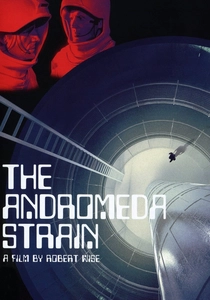
The Andromeda Strain (1971)
Description: A scientific thriller about humanity's vulnerability to external threats and the breakdown of systems meant to protect society, with a focus on biological catastrophe.
Fact: The film's scientific accuracy was praised by real microbiologists. It features one of cinema's first uses of split-screen technology for dramatic effect.
 Watch Now
Watch Now 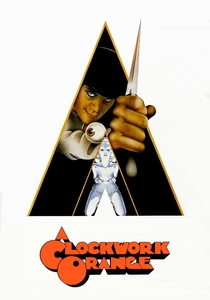
A Clockwork Orange (1971)
Description: Explores themes of free will versus state control and the ethics of behavior modification, presenting a disturbing vision of societal breakdown and youth rebellion.
Fact: The film was banned in several countries for years due to its violent content. The distinctive 'nadsat' slang was created by author Anthony Burgess for the novel.
 Watch Now
Watch Now 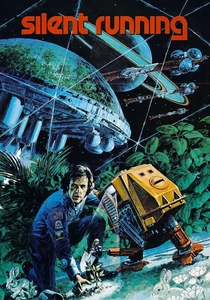
Silent Running (1972)
Description: Focuses on ecological preservation and the conflict between individual morality and corporate/societal directives, set against a backdrop of environmental catastrophe.
Fact: The film's drone robots were operated by amputee actors. It features one of the earliest uses of ecological themes in science fiction cinema.
 Watch Now
Watch Now 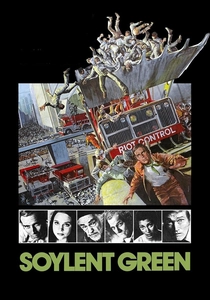
Soylent Green (1973)
Description: A dystopian sci-fi film exploring societal collapse, environmental degradation, and the dehumanization of the masses, mirroring themes of rebellion against oppressive systems.
Fact: The film's shocking twist ending was kept secret during its initial release to preserve its impact. It was one of the first major films to address overpopulation and climate change.
 Watch Now
Watch Now 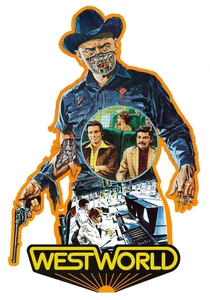
Westworld (1973)
Description: Examines the consequences of artificial lifeforms gaining consciousness and rebelling against their human creators, with themes of technology overtaking humanity.
Fact: This was the first feature film to use digital image processing. It inspired the more recent HBO series of the same name.
 Watch Now
Watch Now 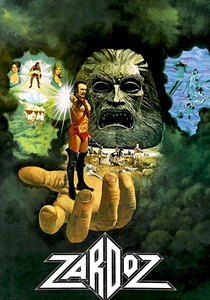
Zardoz (1974)
Description: A surreal sci-fi exploration of class division and the manipulation of society by an elite group, featuring themes of revolution against a false utopia.
Fact: Sean Connery's unusual costume in the film was his own idea. The title comes from combining 'Wizard of Oz' with 'Lizard,' though the meaning is deliberately obscure.
 Watch Now
Watch Now 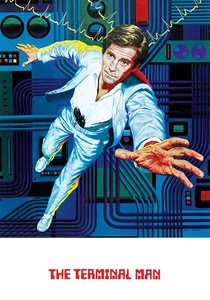
The Terminal Man (1974)
Description: Explores the dangers of technological control over human behavior and the ethical dilemmas of using science to modify human nature against one's will.
Fact: Based on a Michael Crichton novel, it was one of the first films to explore the concept of computer-brain interfaces. The surgical scenes were praised for their realism.
 Watch Now
Watch Now 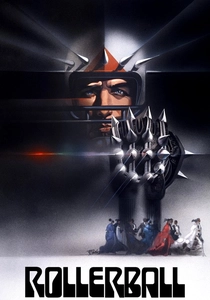
Rollerball (1975)
Description: Depicts a violent future sport used to control the masses, with themes of individual defiance against corporate-controlled society and the suppression of personal identity.
Fact: The futuristic sport was created specifically for the film. All stunt work was performed without CGI, resulting in several injuries during production.
 Watch Now
Watch Now 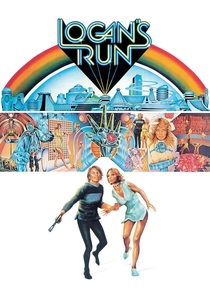
Logan's Run (1976)
Description: Set in a futuristic society with strict population control, it shares themes of rebellion against a controlling system and the quest for freedom beyond societal constraints.
Fact: The film's iconic 'Carousel' sequence was inspired by a real-life amusement park ride. It won a Special Academy Award for its groundbreaking visual effects.
 Watch Now
Watch Now 
